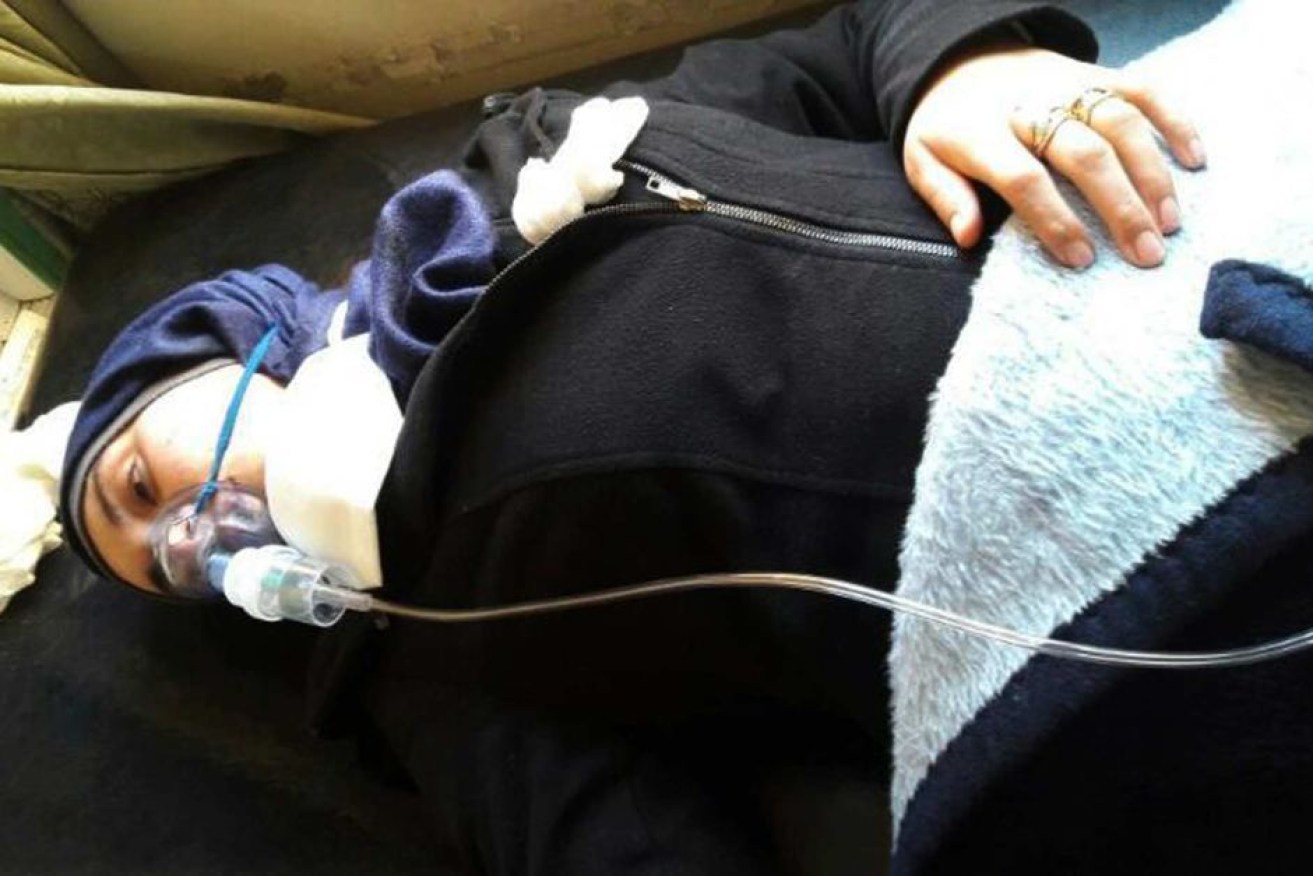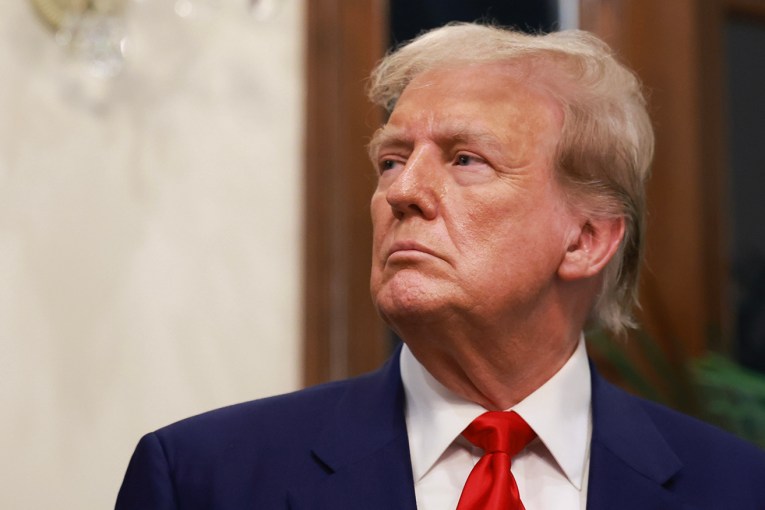All options on the table after Syrian gas attack, US warns

Aya Fadl lies on a bed with an oxygen mask to heal breathing difficulties following the attack in Khan Sheikhoun. Photo: AP
The Pentagon and the White House are in detailed discussions on military options to respond to the poison gas attack being blamed on the Syrian government that has killed scores of civilians.
The options under discussion include grounding aircraft used by Syrian President Bashar al-Assad’s forces, a White House official told Reuters on condition of anonymity.
Other options also include the use of cruise missile, allowing the United States to strike targets without putting piloted aircraft in the skies above Syria.
The official did not comment on how likely military action might be, or which options might be recommended by the Pentagon.
Syria has denied using chemical weapons on its citizens after the US accused Bashar al-Assad’s government of going “beyond a red line”, saying “all options” are now on the table.
More than 80 people died, including dozens of women and children, in what medical agencies say was probably a sarin gas attack on the town of Khan Sheikhoun in Idlib province, a rebel-held area in the north-west of the country.
Syria, however, said it was not logical for the government to use such weapons at this time.
“I stress again that our army has not used chemical weapons and would not use chemical weapons – not against civilians and not against terrorists,” Foreign Minister Walid al-Muallem said at a press conference in Damascus on Thursday.
Autopsy results on three victims in southern Turkey showed that chemical weapons had been used, Turkey’s Justice Minister Bekir Bozdag said.
US President Donald Trump said the attack against civilians was “an affront to humanity by the Assad regime that cannot be tolerated”.
“I will tell you, what happened yesterday is unacceptable to me,” he said.
“And I will tell you, it’s already happened that my attitude toward Syria and Assad has changed very much.”

Donald Trump issued a warning to Syria over the chemical attack.
Mr Trump declined to say how or if his administration would respond, but said the attack “crosses many, many lines”, an allusion to his predecessor Barack Obama’s threat to topple Mr Assad if he crossed a “red line” by using chemical weapons.
In an interview with the New York Times ahead of the press conference, Mr Trump was asked what the chemical attack meant for Russia’s role in the Syrian conflict as a supporter of Mr Assad.
“I think it’s a very sad day for Russia because they’re aligned, and in this case, all information points to Syria that they did this,” he said.
Shortly after, US Vice-President Mike Pence and Secretary of State Rex Tillerson reiterated Mr Trump’s comments.
Australia would consider whether or not to join US action against Syrian President Bashar al-Assad if asked by the Trump administration.
Asked if Australia would join any US action without UN backing, Defence Minister Marise Payne told ABC radio on Friday: “We’ll make decisions in regard to those sorts of issues as they are brought to us.”
Russia says Obama’s ‘red line’ provoked rebels
Earlier in the day, Western countries angrily condemned the Syrian government during an emergency UN Security Council meeting, blaming it for the attack.
“Assad, Russia and Iran have no interest in peace. The illegitimate Syrian government, led by a man with no conscience, has committed untold atrocities against his people,” US ambassador to the UN Nikki Haley told the 15-member council.

Nikki Haley shows pictures of Syrian victims of chemical attacks at a meeting of the Security Council on Syria at UN headquarters. Photo: AP
Ms Haley issued what appeared to be a threat of unilateral action if Security Council members could not agree.
“There are times at the United Nations when we are compelled to take collective action,” she said.
“When the United Nations consistently fails in its duty to act collectively, there are times in the life of states that we are compelled to take our own action.
“For the sake of the victims, I hope the rest of the Council is finally willing to do the same,” she added.
Britain’s UN Ambassador, Matthew Rycroft, also told the Council that Tuesday’s attack “bears all the hallmarks” of President Bashar Assad’s regime.
In February, Syria’s ally, Russia, backed by China, cast its seventh veto to protect Mr Assad’s government from Security Council action, blocking a bid by Western powers to impose sanctions over accusations of chemical weapons attacks.
Australia’s Foreign Minister Julie Bishop said international condemnation must aim to change Russia’s backing of the Syrian regime.
“If Russia has the influence it maintains it does, then it must step up and take responsibility for the actions of the Assad regime,” she said.






